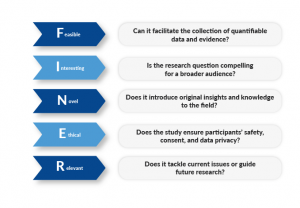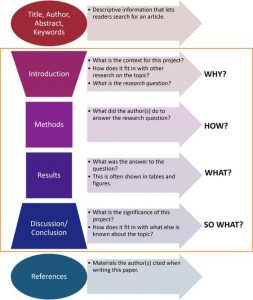The world of nursing research can feel like a vast, unexplored territory. For those embarking on their first nursing research paper writing journey, the process can be daunting. Where do you even begin? What are the essential components of a strong research paper? And how do you avoid common pitfalls?
This comprehensive guide aims to demystify the nursing research paper writing process, equipping you with the necessary knowledge and tools to confidently write a compelling piece.
Steps to Stellar Nursing Research Paper Writing
- Choosing a Topic: The Foundation of Your Research
The first step in any nursing research paper writing process is choosing a topic. This choice sets the foundation for your entire project and dictates the direction of your research. While it's tempting to dive into a flashy or complex subject,
choosing a nursing research paper topic that genuinely interests you is crucial. This passion will fuel your motivation throughout the writing process, ensuring you invest the necessary time and effort to produce a quality paper.
Here are some tips for choosing the right topic for your nursing research paper:
- Relevance: Consider the current trends and pressing issues within your field. What knowledge gaps exist? What problems need solutions? Choosing a relevant topic ensures your research contributes meaningfully to the broader nursing community.
- Feasibility: Evaluate the available resources, including time, funding, and access to data. Choosing a topic that aligns with your capabilities and constraints will make your research process more manageable.
- Personal Interest: Choose a topic that sparks your curiosity and excites you. This personal connection will translate into a more engaging and insightful paper.
- Defining Your Research Question: The Compass of Your Journey
Once you have a topic, the next crucial step is formulating a clear and focused research question. Your research question acts as a compass, guiding your entire research process. It defines the specific problem you will investigate, clarifying your purpose and scope.
 Here's how to craft a strong research question:
Here's how to craft a strong research question:
- Specificity: Avoid overly broad or vague questions. A focused question allows you to delve deeper into your chosen topic. For example, instead of "What is the impact of stress on nurses?", consider "What is the relationship between work-related stress and burnout among emergency room nurses?".
- Measurability: Ensure your research question can be answered through empirical data.
- Relevance: Your research question should connect directly to the chosen topic and address a relevant knowledge gap or practical problem.
- Literature Review: Building Your Foundation
A comprehensive literature review is essential for any nursing research paper. It provides a foundation for your study, grounding your research in existing knowledge and establishing the context for your inquiry. This critical step involves systematically searching for, evaluating, and synthesizing relevant literature related to your topic and research question.
Here are some key steps for conducting a thorough literature review:
- Search Strategies: Develop a systematic approach to searching for relevant studies using various databases (e.g., PubMed, CINAHL, Nursing Papers, Cochrane Library). Employ relevant keywords and filters to narrow down your search results.
- Critical Evaluation: Thoroughly evaluate the credibility and relevance of each source. Analyze the research methodology, study design, and findings of each study, identifying potential biases or limitations.
- Synthesis: Organize your findings into a coherent narrative. Highlight key themes and controversies, identifying gaps in the existing research and articulating the rationale for your own study.
- Methodology: Designing Your Research Approach
The methodology section outlines the methods you will employ to collect and analyze data, answering your research question. This section is crucial for demonstrating the scientific rigor and validity of your research.
Here are some key elements to consider in your methodology:
- Research Design: Choose a research design that aligns with your research question. Common options include quantitative (e.g., surveys, experiments), qualitative (e.g., interviews, focus groups), or mixed methods.
- Data Collection Methods: Clearly describe the specific methods you will use to collect data, including instruments, tools, and procedures. Ensure the chosen methods are appropriate for your research question and design.
- Sample Selection: Explain how you will select your participants or data sources. Define your target population, sampling strategy, and sample size, ensuring ethical considerations are addressed.
- Data Analysis: Describe the specific techniques you will use to analyze your data, considering the type of data you will collect (e.g., statistical analysis for quantitative data, thematic analysis for qualitative data).

- Results: Presenting Your Findings
The results section presents the findings of your study, objectively describing the data you collected and analyzed. This section should be clear, concise, and organized, allowing the reader to understand the key results of your research.
Here are some key guidelines for writing your results section:
- Clarity and Precision: Use tables, graphs, and figures to visually present your data effectively. Avoid interpreting the findings in this section; focus solely on objectively reporting the results.
- Relevance: Highlight the key findings that directly relate to your research question.
- Organization: Present your results in a logical sequence, ensuring the reader can easily follow your analysis.
- Discussion: Interpreting and Analyzing Your Results
The discussion section is where you interpret your findings, relating them back to your research question and existing literature. This section showcases your critical thinking skills, allowing you to draw meaningful conclusions and contribute to the broader body of nursing knowledge.
Here are some key steps for writing your discussion:
- Summary of Findings: Begin by summarizing the key findings of your study, connecting them back to your research question.
- Interpretation: Analyze the significance of your findings, providing a plausible explanation for the results and connecting them to existing theories and concepts.
- Limitations: Acknowledge any limitations of your study, such as sample size, data collection methods, or potential biases, discussing their impact on the findings.
- Implications for Practice: Discuss the implications of your findings for nursing practice, highlighting potential applications and areas for future research.
- Conclusion: Summarizing Your Research Journey
The conclusion section provides a concise summary of your entire research journey. It should reiterate your research question, summarize your findings, and highlight the key contributions of your study. The conclusion should be clear, concise, and compelling, leaving a lasting impression on the reader.

Avoiding Common Pitfalls in Nursing Research Paper Writing
While the process of writing a nursing research paper can be challenging, there are common pitfalls to avoid. Recognizing and addressing these potential issues can enhance the quality and impact of your work.
- Plagiarism: Academic integrity is paramount. Always cite your sources properly and avoid presenting others' work as your own.
- Lack of Clarity and Coherence: Ensure your paper flows logically, with clear connections between sections and ideas.
- Overgeneralization: Avoid making sweeping generalizations based on limited data.
- Insufficient Literature Review: A thorough literature review is essential to grounding your research and establishing the context for your study.
- Ignoring Ethical Considerations: Address all ethical considerations related to data collection, participant consent, and data privacy.
Mastering the Art of Writing for the Nursing Research Paper
Writing a nursing research paper is not just about presenting data; it's about communicating your research findings in a clear, concise, and compelling manner. Mastering the art of academic writing is essential for effectively engaging your audience and maximizing the impact of your research.
Here are some tips for crafting a strong and engaging nursing research paper:
- Active Voice: Use active voice whenever possible, making your writing more dynamic and engaging.
- Conciseness: Avoid unnecessary jargon or overly complex language. Aim for clarity and precision in every sentence.
- Professional Tone: Maintain a professional and objective tone throughout your paper.
- Proper Formatting: Follow the specific formatting guidelines provided by your instructor or journal.
 Seeking Guidance and Support: The Power of Collaboration
Seeking Guidance and Support: The Power of Collaboration
Writing a nursing research paper doesn't have to be a solitary journey. Seeking guidance and support from mentors, colleagues, and peers can be invaluable in navigating the process and improving the quality of your work.
Here are some ways to leverage collaboration to enhance your nursing research paper writing:
- Mentorship: Connect with experienced researchers who can provide valuable guidance and feedback.
- Peer Review: Share your work with colleagues for constructive criticism and feedback.
- Writing Groups: Join writing groups to discuss your work, exchange ideas, and motivate each other.
Embracing the Process: A Journey of Growth and Discovery
Writing a nursing research paper is a journey of growth and discovery. Embrace the challenges, learn from your mistakes, and celebrate your successes. Remember, every research paper is a stepping stone, contributing to your professional development and advancing the field of nursing.
Remember, nursing research paper writing is not about perfection; it's about learning, growing, and contributing to the advancement of nursing knowledge and practice. By following these guidelines, you can embark on your journey with confidence, knowing you have the tools and resources to produce a compelling and impactful research paper.
Get Professional Nursing Research Paper Writing Help
Are you struggling with crafting your nursing research paper? Then, engage
Academia Scholars for professional nursing research paper writing help. We provide customized and on-demand academic writing assistance for nursing research papers,
essays, case studies and
dissertations. Our service covers topic suggestion, paper writing, proof reading, editing and, plagiarism removal.
 Here's how to craft a strong research question:
Here's how to craft a strong research question:


 Seeking Guidance and Support: The Power of Collaboration
Writing a nursing research paper doesn't have to be a solitary journey. Seeking guidance and support from mentors, colleagues, and peers can be invaluable in navigating the process and improving the quality of your work.
Here are some ways to leverage collaboration to enhance your nursing research paper writing:
Seeking Guidance and Support: The Power of Collaboration
Writing a nursing research paper doesn't have to be a solitary journey. Seeking guidance and support from mentors, colleagues, and peers can be invaluable in navigating the process and improving the quality of your work.
Here are some ways to leverage collaboration to enhance your nursing research paper writing: